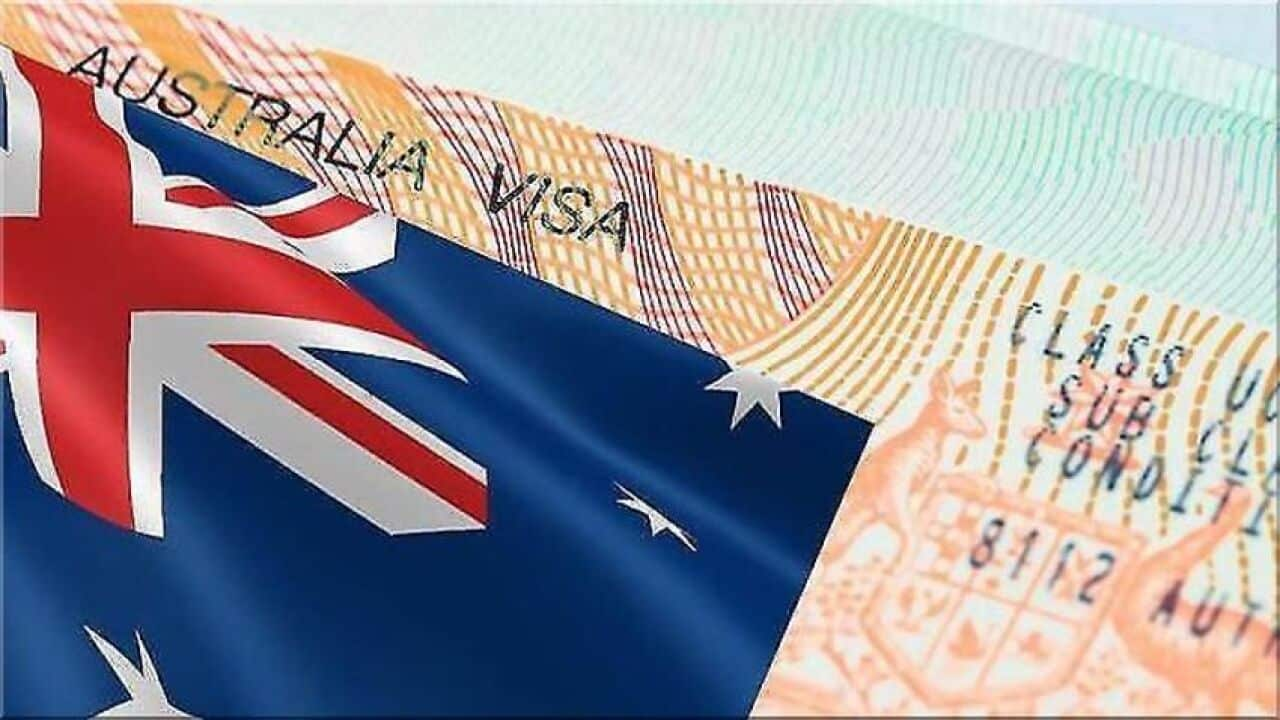Highlights
- A Melbourne-based family is making custom made face masks for men with beards and turbans
- Manmeet Kaur says her family has distributed 2,000 face masks across Melbourne
- Australian health authorities maintain people do not have to wear face masks as this stage of the outbreak
As the effects of the virus have become more widespread with social restrictions in place, Ms Kaur, owner of a fashion retail and tailoring outlet in south-east Melbourne, had to temporarily shut her shop.
But with free time on her hands, she quickly found a constructive way to keep herself going, creating custom made non-medical grade face masks for wearing in public.
The 39-year-old mum of two says the idea came about by chance, when her husband, who is a Sikh and wears a turban and has a beard for religious reasons, couldn’t find a face mask that could accommodate his facial hair and headwear.
“My husband is into one of the essential services which means he still has to get out to work," she explains.
"When we started searching for a face mask for him, we couldn’t find anything that could go around his turban and at the same time would cover at least a portion of his beard.” With a little help from her family, Ms Kaur designed a slightly "bigger than usual" face mask cut out of fabric and held together with strong elastic straps that could stretch across the turban and could also cover a significant portion of facial hair.
With a little help from her family, Ms Kaur designed a slightly "bigger than usual" face mask cut out of fabric and held together with strong elastic straps that could stretch across the turban and could also cover a significant portion of facial hair.

Manmeet Kaur with her husband Harpreet Singh and their two kids. Source: Supplied
She says they have already stitched and distributed 2,000 masks to members of the community.
“My kids cut the elastic straps used to secure the mask around the turban, while my husband cuts the fabric in appropriate sizes and I sew it all together.
“We have made it a little family activity, which allows us to spend quality time together and at the same time serve the community,” she adds.
'For one and all'
Ms Kaur says while she initially designed the mask for her husband, these are for anyone who needs bigger masks then what is available in the market.
"These aren't just for men who wear turbans. They can be worn by people who have long beards, men and women with bigger faces or by elderly who might find them more comfortable." The family is now busy making the next lot of masks, which Ms Kaur says should be ready by the end of the week.
The family is now busy making the next lot of masks, which Ms Kaur says should be ready by the end of the week.

Navdeep Singh wearing a custom made mask. Source: Supplied
“If anyone needs it, please send me a personal message on my Facebook account and we can deliver it for free. These are anxious times for everyone. I strongly believe supporting each other is the only thing that will see us through to the other side of this crisis,” says Ms Kaur. While health authorities in the US are recommending people to wear face masks in public to reduce COVID-19 transmission, the advice for Australians is that wearing a mask is not necessary at this stage of the outbreak.
While health authorities in the US are recommending people to wear face masks in public to reduce COVID-19 transmission, the advice for Australians is that wearing a mask is not necessary at this stage of the outbreak.

A health care worker holds a surgery mask..Surgery and respirator masks shortage in Australia due to the Covid-19 outbreak. Source: Sipa USA Florent Rols / SOPA Images/Sipa
Dr Gurinder Singh, a general practitioner says this is largely because there is an acute shortage of medical-grade face masks.
“Medical-grade masks are important protective equipment for health care workers in the frontline. There is already a widespread shortage and the medical fraternity across board agrees those should be reserved for healthcare providers at this stage,” says Dr Bagga.
According to the World Health Organisationif you are healthy, you only need to wear a mask if you are taking care of a person with suspected COVID-19 infection or if you are coughing and sneezing.
Coronavirus symptoms can range from mild illness to pneumonia, according to the Federal Government's website. Symptoms can include a fever, coughing, sore throat, fatigue and shortness of breath.
If you develop symptoms within 14 days of returning from overseas, you should call to seek medical attention.
If you don’t have symptoms but you have been in contact with a confirmed COVID-19 case, you should also call to seek medical attention.
If you believe you may need to get tested, call your doctor, don’t visit. Or contact the national Coronavirus Health Information Hotline on 1800 020 080.
If you are struggling to breathe or experiencing a medical emergency, call 000.



